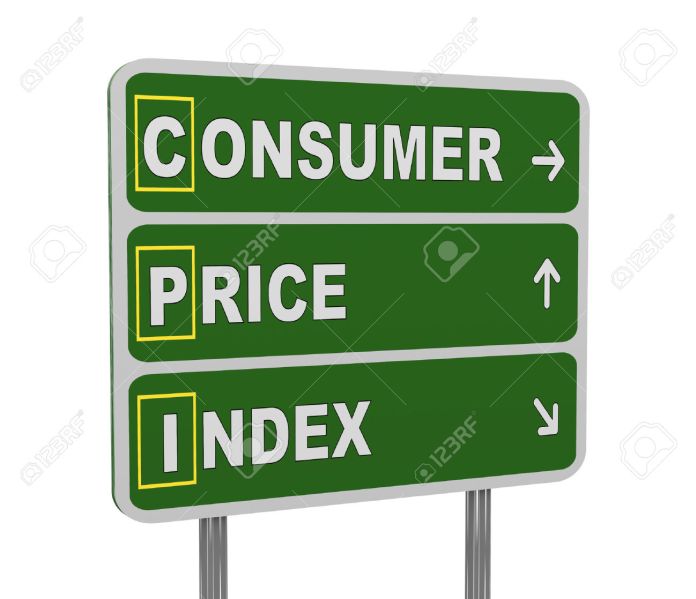- Rising Inflation Worsens Nigeria’s Misery Index
The sustained increase in the consumer price index (CPI), which is used to gauge inflation in the country has worsened misery index in Nigeria, a report by the Financial Derivatives Company Limited has stated.
Using the third quarter 2016 unemployment and underemployment rate of 13.9 per cent and 19.7 per cent (the most recent published figures), and December’s inflation of 18.55 per cent, Nigeria’s misery index is 52.15.
Due to nationwide job cuts (in the banking and oil sector especially) unemployment is estimated to have risen to 14.5 per cent in the fourth quarter of 2016. This is expected to bring the misery index of the fourth quarter, 2016, to a record high of 53.35. This would be 21.05 points higher than the fourth quarter 2014 figures.
Misery index is a measure of economic well-being for a specified economy, computed by taking the sum of the unemployment rate and the inflation rate for a given period. An increasing index means a worsening economic climate for the economy, and vice versa.
To this end, the research and investment company in its latest bi-monthly economic report for January 2017, pointed out that Nigeria’s misery index had risen for the last six quarters, stating that if the movement persists, consumers would be hit hard. In addition, it noted that consumer may be faced with deeper dwindling purchasing power, as their incomes would only be able to buy less of their usual consumption basket. Similarly, the poor will become poorer in real terms, and the middle class will thin out.
These factors are important because they pose economic and social costs to the average income earner. An increase in the misery index is triggered by an increase in either variable, and signifies economic discomfort and negative consumer sentiment.
“Additionally, climbing misery index implies declining economic activity and reduced consumption. This is because unemployed people are underutilised and rising prices will discourage rational consumers from spending. This can cause or complicate an economic slowdown or contraction. There will also be increased debt, as the federal government borrows money to increase social support schemes. In the end, the citizens will be left with high uncertainty and low morale.
“Furthermore, it is believed that consecutive rises in the misery index usually lead to a decline in the favourability ratings of the serving administration, and could result in a re-election loss for the incumbent. This was the case for U.S. President Ford and Jimmy carter, whose terms saw the misery index reach all-time highs. Likewise, Nigeria’s 2015 elections reflected this hypothesis,” the FDC report stated.
Leading the pack of high misery indexes in Africa is South Sudan, whose inflation rate of 457.20 per cent in November 2016 had sent its misery index through the roof. Other countries with high misery index include Angola (67.92), Congo (57.3), Libya (46.9), Kenya (46.3). On the other hand, some countries such as Cameroon (4.55), Ivory Coast (5.1) and Uganda (9.5), still maintain low misery indexes. At 52.15, Nigeria’s misery index is among the top in the continent.
Furthermore, the report noted that oil booms in the past engineered the significant increase in the revenues of net oil exporting countries, with dramatic changes felt in countries like Nigeria, where oil revenues per capita in the country increased from $33 in 1965 to $325 in 2000. With this oil windfall however came dramatic appreciations in the currencies of net oil exporters leading to the famous Dutch disease studies on the effects of oil bonanzas on currencies of countries especially but not exclusive to countries with under developed institutions.
“Natural resource curse hypothesis and empirical studies often characterise countries that fall prey to this state of inefficiency with deindustrialisation, bad growth prospects and currency disequilibrium. Our focus will rest mainly on the latter as forex market challenges and currency woes have contributed significantly to the astronomical hike in the price levels of net oil importers, Venezuela and Angola.
“Venezuela and Angola are oil producing countries that pull their weights in their respective continents. Venezuela currently produces 2.02 million barrels per day, 14.85 per cent higher than 1.72 million barrels per day that Angola produces. Oil revenue contributes about 45 per cent to the GDP of Angola and about 95 per cent to its total ex- ports. The same trend is observed in Venezuela where oil production and activities contribute 50 per cent and 95 per cent to its GDP and exports respectively,” it added.

 Forex3 weeks ago
Forex3 weeks ago
 Naira2 weeks ago
Naira2 weeks ago
 Billionaire Watch2 weeks ago
Billionaire Watch2 weeks ago



 Naira3 weeks ago
Naira3 weeks ago






 Naira2 weeks ago
Naira2 weeks ago




 Naira1 week ago
Naira1 week ago




 Naira4 weeks ago
Naira4 weeks ago






 Naira1 week ago
Naira1 week ago
























